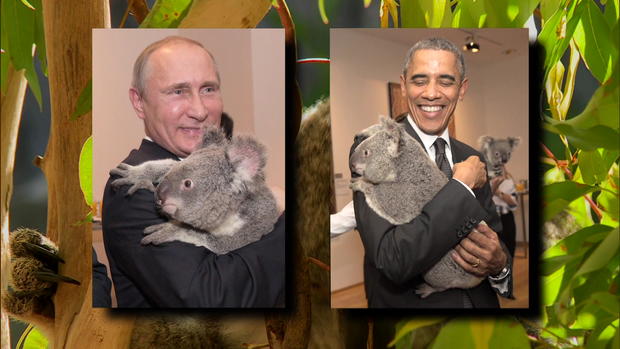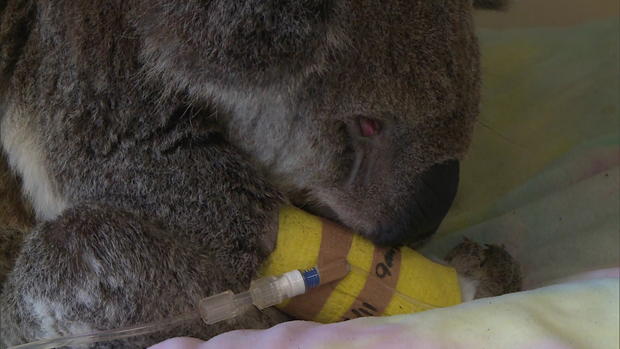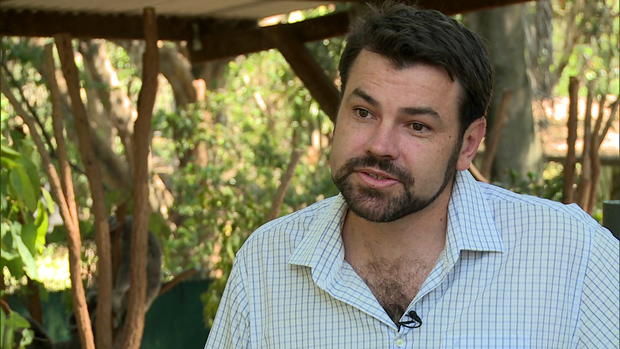Australia's koalas are spreading chlamydia
BRISBANE, Australia -- Koalas are in a cuddly class by themselves. President Barack Obama and Russian President Vladimir Putin concur and they don't agree on much.
Koalas live in in eastern Australia where they compete with humans for habitat. It's a tough equation: each koala needs 100 eucalyptus trees to survive.
Karen Nilsson is head koala keeper at Lone Pine Koala Sanctuary, part of Australia's effort to protect a national mascot whose population has declined by 30 percent since 1990.
"The loss of their habitat not only loses where they live, it loses what they eat too," said Nilsson. "You lose that, you lose everything."
Little pockets of habitat don't work because they get fragmented, according to Nilsson.
"The populations within that group become severely inbred and then they lead to other problems," she told me.
By "other problems" Nilsson means a stunning and slightly uncomfortable reality threatening koalas: chlamydia, a sexually transmitted disease.
Koalas sleep 18 to 20 hours a day and they eat a lot -- more than two pounds of eucalyptus leaves daily.
But they also mate and inadvertently spread the virus that causes infertility and blindness. Red eyes are its signature.
It's not too dire to suggest that koalas could face extinction, according to koala conservationist Adam Polkinghorne.
"There are koala populations that have experienced localized extinctions across its home range," Polkinghorne told me.
He's developing a new vaccine that would offer hope for a cure and a lifetime of protection.
"The idea of the vaccine is that we are going to be able to train the immune system of koalas such that if they're ever exposed to this infection in the wild, their immune system will be able to defend themselves against the infection," Polkinghorne said.
Researchers need more funds to prove the vaccine works so they can give koalas a chance to thrive while sleeping, eating, and doing everything else.



